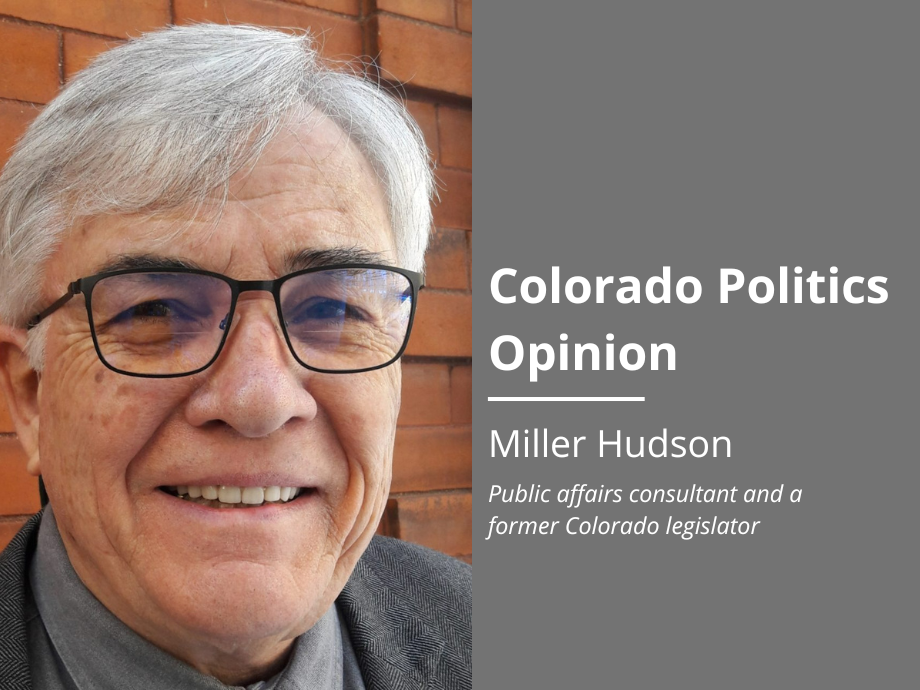Brough vs. Johnston — an early look-ahead | HUDSON


The mayoral runoff in June will probably not resemble Denver’s version of the “Last Duel.” Then again, anything is possible. Although the first round was close, more than half the residents who bothered to vote cast ballots for one of the 14 now-eliminated candidates. It certainly isn’t safe to expect the race to remain neck-and-neck right to the finish line. The real loser in this contest was the Fair Elections Fund, which is intended, at least in part, to offer a genuine chance for a dark-horse candidate to thrust him or herself to the center of the campaign ring. Johnston and Brough’s one-two finish indicates that so long as independent expenditure committees and their dark-money donors can fund campaigns, money will provide the greatest influence in our elections. We can thank the Supreme Court’s Citizens United decision for this distortion.
The truth is Denver voters know little more about the two finalists for mayor than they knew of the losing candidates, and that was gleaned from the 30-second commercials Brough and Johnston could afford to air. Neither campaign generated the quirky humor or heart-tugging stories that carried John Hickenlooper and Michael Hancock to City Hall. The current rivals possess strengths and weaknesses that will illuminate who they are and what their policy preferences are likely to be. The winner will serve as CEO of a multi-billion dollar business employing more than 12,000 workers. The good news is each of them seems up to the job. Denver should continue to prosper whoever is elected mayor.
Since political consultants and the evil geniuses they hire believe negative ads are far more effective than positive ones, it’s advisable to consider each candidate’s vulnerabilities since we are more likely to learn about those. Though independent expenditure committees are legally required to operate at arm’s length from the official campaign, this separation is never perfect. When dark money tactics cross the boundaries of accepted propriety it is not uncommon for a candidate to demand offending messages be recalled and, miraculously, they usually have their request granted. Nonetheless, candidates operate in a fog of fear that their “allies” will not know where or when to draw this line.
Mike Johnston sprang on to the Denver political stage in 2009 when Colorado Senate President Peter Groff was tapped by the Obama administration to serve in the U. S. Department of Education. Relatively unknown, Johnston captured a bare majority of the Democratic vacancy committee on the first ballot in a Northeast Denver District which had been represented by an African-American for several decades. As principal of a charter school serving Park Hill and southern Adams County, he swiftly became a leader in the previously somewhat disorganized Democrats for Educational Reform (DFER). His focus on creating educational alternatives prompted him to introduce a tough teacher accountability measure that received more Republican support than it did among Democrats in the House and Senate. His success earned him the enmity of the Colorado Education Association as well as the Denver Classroom Teachers Association.
The DFER Coalition enjoyed nearly a decade of dominance on the Denver School Board but generated simmering animosity from teachers. In an effort to build bridges to the CEA and DCTA, Mike agreed to chair a campaign to expand annual school funding by a billion dollars, primarily through a sales tax increase. The measure went down to an ignominious statewide defeat, even losing 2-to-1 in usually tax-friendly Denver. As I wrote at the time, “even Democrats think a billion dollars sounds like a lot of money.”
During Johnston’s later campaigns for governor and the U. S. Senate, he discovered he had won few new friends with teacher organizations. Many classroom teachers remain prepared to torch his latest candidacy again. Senator Johnston is also recalled by both lobbyists and his peers for failing to appear for scheduled commitments, passing off urgent requests to his aides. This was perhaps captured best by a colleague, who explained an absence with the sardonic observation, “I think he’s too busy planning his inauguration.”
Kelly Brough carries her own political baggage. Well thought of while serving as Mayor Hickenlooper’s chief-of-staff, it is rumored her former boss was irritated by the ad touting her as prepared to run the city “…because I’ve done it before” as chief-of-staff. It’s alleged the senator promptly fired off $100 checks to five of her opponents as an expression of his neutrality in the mayor’s race. Of course, John has a history of encouraging candidacies, just ask Bill Vidal or Donna Lynne, before snatching the rug out from under their feet.
More serious politically has been Brough’s record while CEO at the Denver Chamber of Commerce, of opposing several of the social justice initiatives overwhelmingly supported by Denver voters – most recently the family leave policy that was approved by voters. Kelly points out she offered family leave benefits for all employees at the Chamber. She argues it was her board of directors that opted to fight a statewide requirement for compliance.
It can be argued the Chamber could have cut a more satisfactory agreement if they had negotiated with Democratic legislators sponsoring the family leave bill while it was still being debated at the Capitol. After a decision is made to take a question to the ballot there isn’t much purpose served by compromise. The Chamber also fought the campaign for a $15-an-hour minimum wage. Once the bill failed, voters approved a phased-in escalation of Denver’s minimum wage. The COVID-19 pandemic outstripped this initiative and starting wages today are often $18-to-$19-per-hour. The economic sky has failed to collapse as predicted. Nonetheless, it’s been tricky for Kelly to explain the tension between her obligation to represent the Chamber’s political choices before a community that has been drifting leftward for more than a decade. Denver is long overdue to elect a woman as its mayor.
Highlighting the positive assets for each candidate, Mike Johnston is a Harvard graduate who passed on law school to join Teach for America and then taught for two years at a virtually all-black high school in Jackson, Mississippi. He recounts this story in his book, “In the Deep Heart’s Core.” Read it if you want to understand his dedication to educating children. Kelly Brough has successfully built bridges between Denver’s Republican business community and a majority Democratic political leadership in Denver which have served both communities – no mean feat. The Queen City of the Plains has enjoyed a 40-year run of solid leadership at City Hall. Either of this year’s finalists will stretch that record to a half century.
Miller Hudson is a public affairs consultant and a former Colorado legislator.











